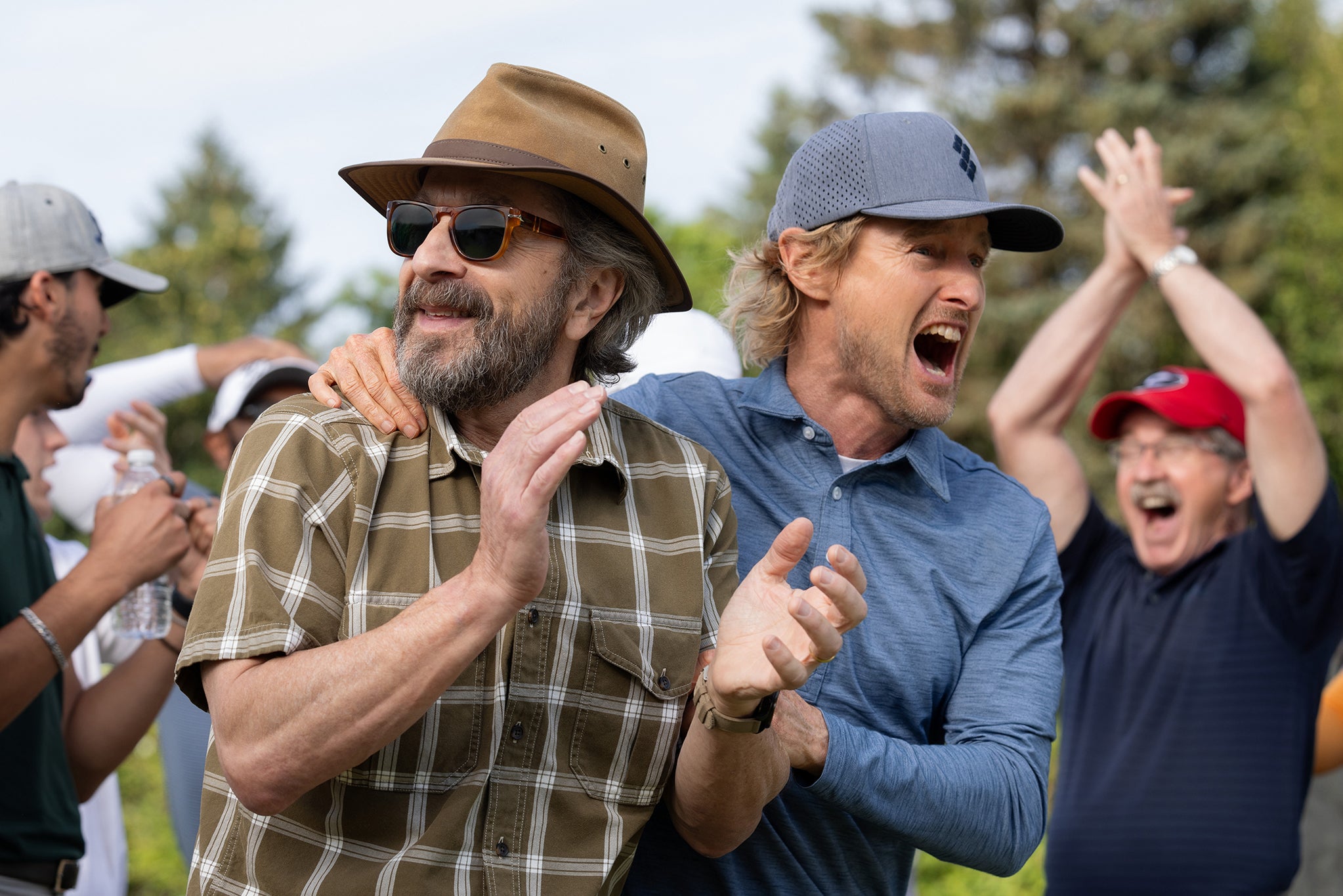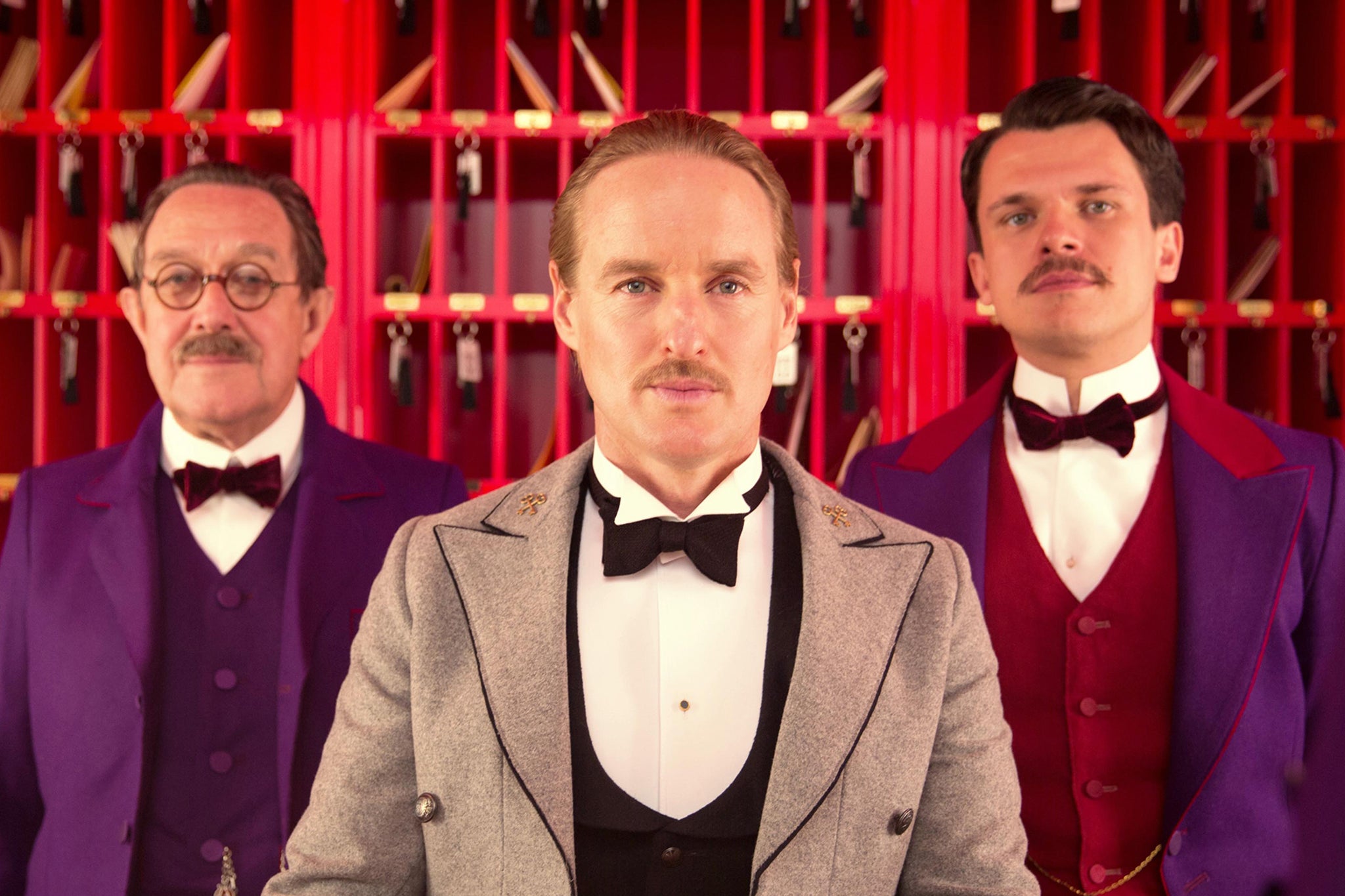How we’ve missed the laidback, shaggy-dog charms of Owen Wilson. The now 56-year-old star of Wedding Crashers, Marley & Me and Zoolander has scored a comedy hole-in-one with new Apple TV+ golf dramedy Stick – a show that brims with an easygoing joie de vivre fueled almost entirely by Wilson’s zen energy.
Those free and easy vibes have long been Wilson’s unique selling point. Nobody would ever mistake the Dallas-born actor for the second coming of Daniel Day-Lewis or Robert De Niro. Within comedy, there are much funnier actors – you’ll never fracture a rib cracking up to Wilson. But what he brings is so much more valuable – a one-person anxiety-relief system, he makes the world feel so much less stressful when on screen.
Ubiquitous in the early 2000s, Wilson has cut a more elusive figure in recent years. He passed almost without trace in the Marvel streaming curio Loki, playing a hangdog foil to Tom Hiddleston’s eponymous trickster god. That series had a decent first season, but all goodwill towards it was erased with a bamboozling second run that tied itself (and the viewer) in knots with a baffling time-travel plot.
Wilson is on much firmer turf with Stick, in which he plays former golf champion Pryce Cahill, whose career unravelled 15 years previously when he had a spectacular meltdown on the course. In his fifties, life is passing him by at the speed of a nine-iron in full motion until he discovers a young protege (a mercurial Peter Dager) on the driving range and vows to make him a star.
Stick’s creator Jason Keller has revealed that the story is very loosely based on the success and failures experienced by his father, a former Major League Baseball pitcher – adding that he swapped baseball for golf because, in America at least, it’s the one sport where a complete outsider can become an overnight success.
But the true appeal of Stick is Wilson, who ambles beguilingly through the story – seemingly unconcerned with milking the script for laughs or unearthing big dramatic moments. He’s just a good hang, and the sense of not much being at stake is where much of the appeal comes from (that said, Judy Greer and Marc Maron are likeable too as Pryce’s ex-wife and best pal, respectively).

Above all, Stick is a beguiling departure from the streaming status quo. From Succession to The White Lotus, modern television nowadays brims with neurotic characters behaving appallingly, and – episode by episode – it can become exhausting. Yes, people are awful – rich people even more so, but please do tell us something we don’t already know. In Stick, Wilson has nothing to declare beyond his own sauntering geniality – though he is careful never to tip over into the cloying overkill that makes a supposedly fun watch such as Ted Lasso such hard work. Wilson is charm on, well, a stick – but it never feels as if he is selling you a sanitised version of himself.
That amiability works because it comes from a place of truth and is infused with a genuine soulfulness and vulnerability. Those qualities were a feature of his early work with director Wes Anderson. Having met at university in Austin, the friends co-wrote early Anderson features Bottle Rocket, Rushmore and The Royal Tenenbaums (which also featured Wilson’s more hangdog younger brother, Luke). As even the biggest Anderson buffs will admit, those films were among the director’s most humane and compelling work – and it is hard not to conclude that was down, in part at least, to Wilson. He acted up a storm, too, in The Royal Tenenbaums as Eli Cash, a writer high on mescaline and his own ridiculousness (“Everyone knows Custer died at Little Bighorn. What this book presupposes is… maybe he didn’t?”).
Wilson would continue to act in Anderson films, playing an eccentric concierge in The Grand Budapest Hotel and a travel writer in The French Dispatch. But he soon moved beyond arthouse quirk to become one of the biggest names in comedy and a regular collaborator of Ben Stiller’s (see Zoolander or Starsky and Hutch). The early 2000s were the last gasp of the gross-out chuckle fest, and Wilson appeared in plenty of lowbrow fare – in 2011’s Hall Pass, for instance, he is a beleaguered husband who received permission from his spouse to sleep with other women (with less than hilarious result).

By then, the darkness in his personal life was casting a shadow over his happy-go-lucky persona. Wilson has been open in recent years about his experiences with depression, and how his family and loved ones had closed ranks around him in 2007 after he attempted to take his own life. Death, he told Esquire in 2021, had been on his mind since childhood. “I don’t remember ever talking with my parents about it. Although I do remember one time saying to my dad – and I remember exactly where in the house – saying, ‘I worry about dying,’ and seeing my dad turn away and catch himself. And I was surprised to see that reaction. But who knows, maybe that was part of why I said it.”
It may seem contradictory that Hollywood’s most cheery screen presence should have been obsessed with his own mortality since age 11. But perhaps that’s why Wilson makes for such an authentic screen presence. In Stick, Pryce is gradually revealed to have a tragic backstory – that golf course meltdown didn’t come out of nowhere. Through it all, Wilson’s performance has a powerfully human quality. Pryce has been through a lot, but he still sees the positives in life and in other people. At a time when there is so much negativity in the world, that glow of optimism, burning so brightly in Wilson’s acting, has never felt more appealing or important.
‘Stick’ is streaming on Apple TV+


